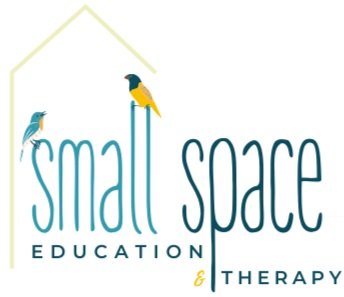What is a literacy screening for reading, spelling, and writing development?
Looking for information about your child’s reading development?
Small Space Studios, LLC offers informational screening sessions for children beginning at age 5. These sessions provide parents with a comprehensive profile of their child’s reading development including phonological/phonemic awareness, phonological working memory, rapid naming, listening comprehension, decoding, sight word reading, fluency and prosody, reading comprehension, spelling, letter-sound correspondence, and letter formation.
These can be accessed as a stand-alone service, or paired with a Summer Sprints or Summer Parent Coaching packages.
Who informational literacy screenings are for:
You want more information about your child’s learning.
You’ve been told by a school to be patient but with limited (or no) data.
You’ve been told by a teacher that your child is behind grade level but with no data or with data that doesn’t “ring true.”
You are waiting for a psych-ed evaluation that is at least a month out, but want reading or spelling specific information sooner.
You are frustrated and you just don’t understand why your child can’t read.
You have a family history of dyslexia and you want to look for warning signs.
You want to help your child learn to read but you don’t know where to start.
You notice differences between this child and your other children or the child’s peers.
Your child is resistant to reading or writing, but not to all academic activities.
What a screening includes:
A half-hour parent interview covering the child’s education history, the child’s development, family history, and the child’s interests.
One two-hour assessment. This includes several validated, reliable reading assessments with built in movement breaks and a creative or building activity. Keeping the session fun allows us to get the most accurate data during the assessments.
A written report including all assessment data, interpretations, observations, and recommendations.
Follow up call with parents explaining the report and the suggestions for next steps.
Benefits of private reading screening:
Quick turnaround: sessions can be scheduled quickly and reports are delivered within 5 business days.
Actionable information: instead of vague domains, all data is presented with examples and information on what and how to remediate.
Client fidelity: I work for you and share everything I see. I am not recruiting tutoring clients; I’m not selling a remediation program; I’m not balancing the workload of a teaching staff; I’m not conserving school resources. I administer high quality, valid, reliable tests and apply my observational skills to share a detailed report with you.
Compassion: I know firsthand the fear of not knowing how to help your child. I also know the flip side: empowered by data, you can get your child the help they need.
Limitations of private reading screening:
No diagnosis. Not only am I not qualified to diagnose, I only assess reading. A comprehensive psych-ed evaluation will compare reading deficits to other developmental and cognitive dimensions, looking for unexpected disconnects.
Not “admissible evidence” for services or accommodations. Depending on your child's school, their learning team may or may not take my report into consideration. Often, a public school will only accept private evaluations from a licensed psychologist.
Who is this not for:
You have a neuro-psych evaluation scheduled within the next month.
Your child works with a tutor and you want to “cross-check” their effectiveness.
Your child’s reading delays are already explained by other factors.
Your child learned to speak English within the last two years.*
Your child is an advanced reader and you are looking for data to support entry to accelerated or gifted programs.
Your child shows signs of hyperlexia or is experiencing alexia.*
*These domains are currently outside my scope of practice but please contact me for a referral.
My qualifications:
I am a certified Structured Literacy/Dyslexia Interventionist trained to look closely at a student’s literacy development across the markers of typical development. I have a masters degree in counseling with coursework in tests and measurements but I am not a licensed counselor. I also have a PhD in dance education with significant coursework in qualitative interviewing methods.
I can equip you with data and observations as well as recommendations.
I do not diagnose specific learning disabilities or legally identify specific learning disorders. My evaluation will not provide you with any diagnosis or the documentation you need to qualify for services. However, it may aid you in accessing further evaluations. This service is available to self-pay clients.
